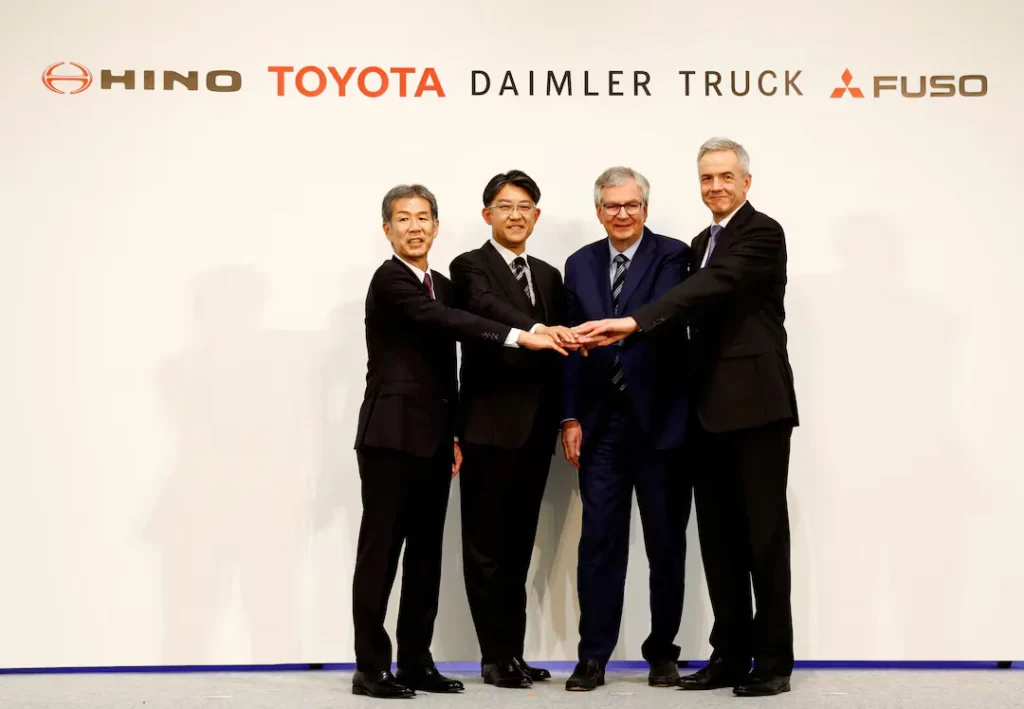Islamabad, 22 Apr 2025: Toyota Motor Corporation and Daimler Truck are on the verge of finalising their long-anticipated merger of Japanese truck subsidiaries Hino Motors and Mitsubishi Fuso Truck and Bus.
According to recent reports, the two companies aim to establish a new holding company to oversee their combined operations, with plans to list it on the Tokyo Stock Exchange’s Prime market by April 2026 .
The merger, initially announced in May 2023, was delayed following Hino’s engine data scandal, which led to a significant financial penalty.
However, with compliance issues largely resolved and the Japan Fair Trade Commission’s antitrust review nearing completion, negotiations have resumed and are expected to conclude by May 2025 .
READ MORE:
Toyota Launches Limited Time for a Free Yaris Upgrade
Under the proposed structure, the new holding company would fully own both Hino and Mitsubishi Fuso. Toyota currently holds a 50.1% stake in Hino, while Daimler Truck controls 89.3% of Mitsubishi Fuso.
Despite the equal ownership in the holding company, Toyota’s voting power is anticipated to be limited to below 20%, likely due to antitrust considerations related to Toyota’s existing ties with Isuzu Motors .
This strategic merger is seen as a response to the growing pressures of electrification, autonomous technology, and geopolitical challenges, including U.S. tariffs and increasing competition from Chinese automakers like FAW Group.
In 2024, Daimler Truck sold over 407,000 medium and heavy-duty trucks globally, while Hino sold approximately 130,000 units across various categories.
The combined entity would command roughly 14% of the medium- and heavy-duty truck market .
READ MORE:
Toyota Avalon & Ford F-150: Full-Size Icons in Pakistan
Once finalised, the merger will effectively divide Japan’s commercial vehicle sector into two major alliances: the Hino-Mitsubishi Fuso group and the Isuzu-UD Trucks group.
Daimler is also exploring potential partnerships in the U.S. to mitigate the impact of American trade policies .
This development marks a significant shift in Japan’s commercial vehicle industry, with the merger poised to enhance technological advancements and market competitiveness.
